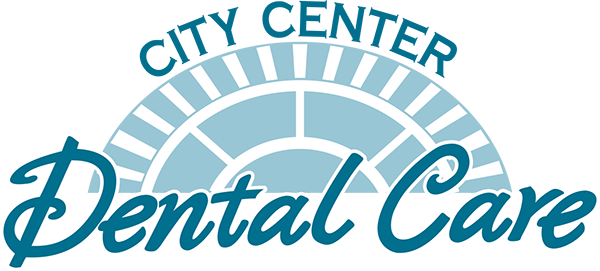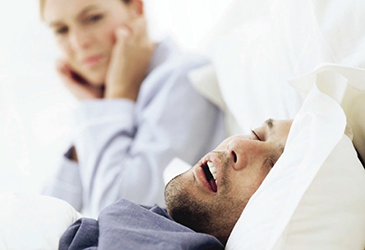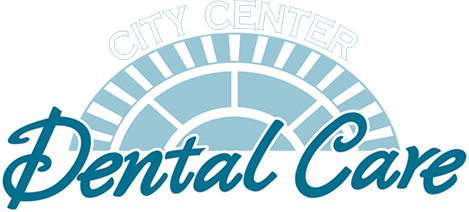Snoring/Sleep Apnea Treatment
Patients who snore can be an annoyance to themselves, but especially to those trying to sleep nearby. However, many people don’t realize that snoring can be a sign of a more serious problem called Sleep Apnea. People with this condition actually stop breathing during sleep, which greatly reduces the amount of oxygen they get. The body wakes them up many times during the night and thus results in them not getting enough rest, hence the daytime sleepiness/tiredness. It also predisposes them to other medical problems.
Dentists Treat Sleep Apnea, Too
Did you know that many dentists are trained to help treat and manage your snoring and sleep apnea? Dental sleep medicine is an area of dental practice that focuses on the use of oral appliance therapy to treat sleep-disordered breathing, including snoring and obstructive sleep apnea (OSA). Dentists work together with sleep physicians to identify the best treatment for each patient.
If you have trouble tolerating continuous positive airway pressure (CPAP) therapy or prefer an alternate treatment for sleep apnea, talk to our dentists about possible treatment options. Oral appliance therapy can help you and your bed partner get a good night’s sleep, and it will improve your health and quality of life.
Your Health and Quality of Life
The quality of your sleep has a dramatic impact on your health, well-being and overall quality of life. Snoring and obstructive sleep apnea disrupt your sleep and increase your risk of severe health problems. Remember that snoring is a warning sign that should never be ignored. Across the country, many dentists are prepared to provide oral appliance therapy to treat snoring and obstructive sleep apnea. Talk to your doctor and dentist about your treatment options.
Snoring and Obstructive Sleep Apnea
Snoring is a common warning sign for obstructive sleep apnea. Prior to treatment, you should be diagnosed by a board-certified sleep medicine physician. If you have snoring without sleep apnea, your dentist can have an oral appliance fabricated to help stop your snoring. If you have sleep apnea, your physician will discuss treatment options with you.
The most common treatment for sleep apnea is continuous positive airway pressure (CPAP) therapy. The CPAP machine keeps your airway open by providing forced air through flexible tubing. CPAP therapy requires you to wear a mask as you sleep. Although CPAP therapy is effective, some people are unable to adhere to it. Your doctor should consider giving you a prescription for a sleep apnea oral appliance if you are unable to tolerate CPAP therapy or prefer an alternate treatment. Many people like an oral appliance because it is comfortable, quiet, portable and easy to wear. The oral appliance might not be an option for those diagnosed with severe sleep apnea. In some severe cases of sleep apnea, upper airway surgery may be another treatment option.
Introduction to Oral Appliance Therapy
Dentists pioneered the use of oral appliance therapy for the treatment of obstructive sleep apnea and snoring in adults. An oral appliance is a device worn in the mouth only during sleep. It fits like a sports mouth guard or orthodontic retainer. A custom-fit oral sleep appliance is an effective treatment that prevents the airway from collapsing by supporting the jaw in a forward position.
Oral appliance therapy is an effective treatment for obstructive sleep apnea (OSA) and snoring. Provided by a dentist, oral appliance therapy uses a custom-fit, “mouth guard-like” device worn only during sleep. Oral appliance therapy helps maintain an open, unobstructed airway.
Watch the video of a brief overview of the fitting process for an oral appliance.
Read more about oral appliance therapy for snoring and obstructive sleep apnea
Qualified Dentists and Patient Care
Oral appliance therapy should be provided by a qualified dentist who has the technical skill and knowledge in dental sleep medicine. Training in how to provide oral appliance therapy is not always taught in dental schools so not all dentists have the training or experience to provide optimal care for adults with snoring or sleep apnea.
References
Ramar K, Dort LC, Katz SG, Lettieri CJ, Harrod CG, Thomas SM, Chervin RD. Clinical practice guideline for the treatment of obstructive sleep apnea and snoring with oral appliance therapy: an update for 2015. Journal of Dental Sleep Medicine2015;2(3):71–125.
Scherr SC, Dort LC, Almeida FR, Bennett KM, Blumenstock NT, Demko BG, Essick GK, Katz SG, McLornan PM, Phillips KS, Prehn RS, Rogers RR, Schell TG, Sheats RD, Sreshta FP. Definition of an effective oral appliance for the treatment of obstructive sleep apnea and snoring. Journal of Dental Sleep Medicine 2014;1(1):51.
Scherr SC, D L, Almeida FR, Bennett KM, et al., authors. Definition of an effective oral appliance for the treatment of obstructive sleep apnea and snoring: a report of the American Academy of Dental Sleep Medicine. Journal of Dental Sleep Medicine2014;1:39–50.
Rogers RR, Remmers J, Lowe AA, Cistulli PA, Prinsell J, Pantino D, Rogers MB. History of dental sleep medicine. Journal of Dental Sleep Medicine 2014;1(1):67–74.
Frequently Asked Question
What is sleep apnea?
Sleep apnea is a potentially serious sleep disorder in which breathing repeatedly stops and starts.
What are the negative side effects of sleep apnea?
Sleep apnea can cause an increased risk of health problems such as high blood pressure, stroke, heart failure, irregular heartbeat, heart attacks, diabetes, depression, worsening of ADHD, headaches, and failure of a variety of organs. In addition, untreated sleep apnea can affect your performance in everyday life, such as at work and school.
What does an oral appliance do?
An oral appliance fits like an orthodontic retainer on both the top and bottom arches. It helps support the lower jaw in a forward position to help maintain an open upper airway during sleep.


